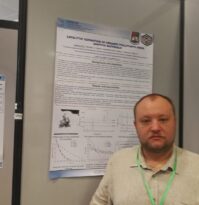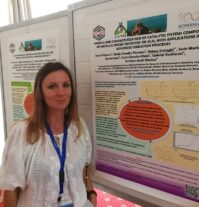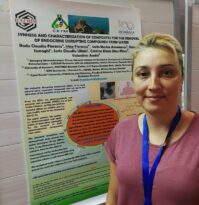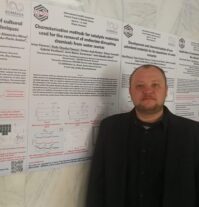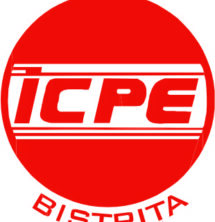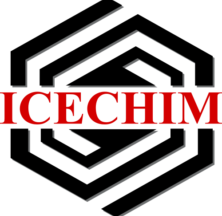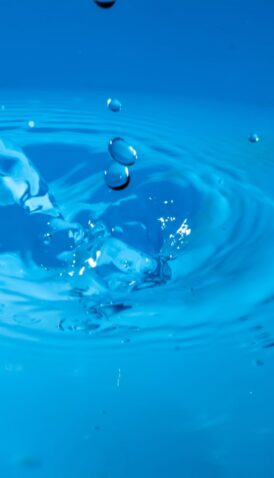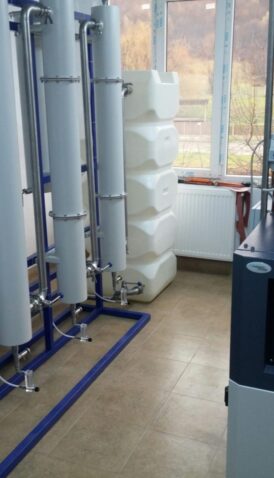Depollution of water containing hardly biodegradable organic compounds (endocrine disruptors) by advanced oxidation processes using innovative catalysts
OXYDEP
PN-III-P2-2.1-PTE2016-0063 (8PTE/2016)
Endocrine disruptors (ECDs) are synthetic chemicals that mimic the function of hormones and, once in the body, alter the hormonal balance. The source of these endocrine disruptors is diverse, coming from synthetic products used or resulting from the most diverse branches of the economy. We are talking about: dioxins, parabens, bisphenol A, phthalates (plastics industry), organic insecticides, etc. Important sources of endocrine disruptors are compounds from pharmaceuticals and personal care products (PCPs).
Project goal
The aim of the OXYDEP project is the transfer of a water depollution technology containing hardly biodegradable organic compounds (endocrine disruptors) to an economic agent with a solid tradition in the development, implementation of technologies and production of systems for water depollution and treatment.
Contracting authority: Executive Unit for Financing Higher Education, Research, Development and Innovation (UEFISCDI)
Implementation period: 06/10/2016-30/09/2018
Total budget: 2.035.558 lei
Own budget (co-financing): 375.517 lei
Budget for the partner ICECHIM: 419.278 lei
Project responsible: Dr. Chim. Radu Claudiu Fierăscu
Coordinator:
S.C. I.C.P.E. Bistrița S.A., Bistriţa-Năsăud, România,
Project director: Dr. eng. Sorin Claudiu Ulinici
Partner 1:
Project responsible: Dr. Chem. Sorin Marius Avramescu
Partener 2:
National Institute for Research & Development in Chemistry and Petrochemistry ICECHIM
Project responsible: Dr. Chem. Radu Claudiu Fierăscu
- A new approach to advanced oxidation processes (AOP), in order to reduce energy consumption, to obtain the most complete mineralization of pollutants, thus transforming the AOP into a process successfully transferred to the industrial level. The approach involves the use of innovative catalysts in catalytic ozonation processes, resulting in reduced operating costs, capital costs, increased environmental performance and energy efficiency of the depollution process.
- An optimization of the synthesized catalysts (by studying both the optimal support materials and the active component), both to align the technology with the latest studies worldwide and to ensure a successful transfer to the economic agent.
- Approaching a wide range of applications in the field of water treatment, both waste and drinking water, depending on the application can be configured for: industrial wastewater treatment for treatment or recirculation for technological purposes, integration into conventional treatment steps to remove non-biodegradable organic pollutants and increasing the degree of biodegradability, decontamination of water from contaminated sources and used for the production of drinking water, use in emergencies or hazardous situations.
Preliminary activities for the validation of technology at industrial level.
Implementation period: 06/12/2016 – 15/12/2016
Activities carried out:
- Study on the transfer of validated laboratory technology on an industrial scale;
- Study and analysis of the possibilities of optimizing the proposed technology (possibilities of optimizing the support material and the active component of the catalyst used in the technology);
- Functional model design;
- Development of analytical protocols necessary to characterize the efficiency of technology (protocols for water characterization before and after the application of technology, protocols for characterization of catalytic materials);
Validation in the industrial environment of the proposed technology.
Implementation period: 16/12/2016 – 15/12/2017
Activities carried out:
- Realization of the functional model in order to implement the technology in the industrial environment
- Synthesis and manufacture of technology-optimized catalysts
- Characterization of optimized catalysts
- Experiments on the functional model using optimized catalysts
- Functional model simulation in order to establish the optimal operating parameters
- Study and comparative analysis of the effects of technology implementation through pre- and post-treatment water analysis
- Analytical characterization of pre- and post-treatment catalysts
- Initial reference elaboration. Feasibility study for the proposed technology
- Dissemination of results
- Protection of intellectual property rights. Submission of a patent application
- Prototype design
Demonstrating the efficiency of technology in the industrial environment
Implementation period: 16/12/2017 – 03/07/2018
Activities carried out:
- Prototype production
- Prototype experiments in order to optimize the operating parameters
- Demonstrating the efficiency of the technology implemented in the industrial environment, by characterizing the post-treatment waters
- Characterization of post-treatment catalytic materials
- Elaboration of the final technical specification
- Dissemination of results
Within the project, the prototype of the depollution module was made, which was installed within the Municipal Water Treatment Plant Bistrita, where it was tested in real operating conditions on water samples from the technological treatment flow.
The technological flow related to the water depollution module containing hardly biodegradable organic compounds includes water-ozone contact steps and the catalytic reactor, followed by the adsorption filter. This module is configured in such a way that it can be operated both with immobilized catalytic bed and in a fluidized environment. The module can operate both in INPUT-OUTPUT mode and in recirculation mode.
The demonstration of the efficiency of the technology was made by characterizing the pre- and post-treatment waters. Its viability was also assessed by characterizing the catalytic materials before and after the water treatment stage.
The project resulted in the patent application “Process for water treatment with content of hardly degradable organic pollutants” – A / 2017/01032, Authors: Sorin Claudiu Ulinici, Sorin Marius Avramescu, Radu Claudiu Fierăscu
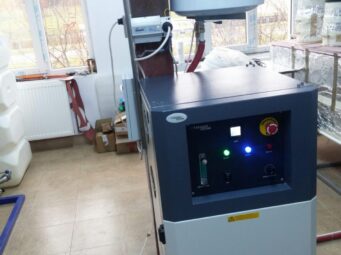
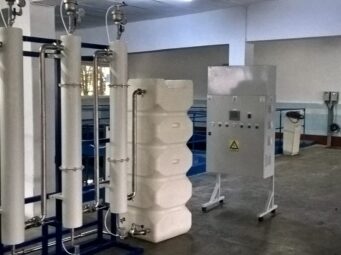
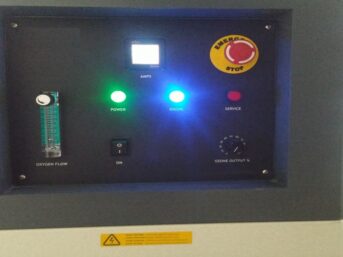
The contribution of the ICECHIM partner to the dissemination of the results materialized in the publication of six scientific papers in ISI journals (Nanomaterials, Applied Surface Science, Farmacia, Analytical Letters, Bulletin of Environmental Contamination and Toxicology) and participation with ten papers in scientific events:
- 17th International Balkan Workshop on Applied Physics, IBWAP-2017
- 10th International Conference on Materials Science & Engineering – BraMat 2017
- The International Conference on Environmental Engineering and Management (ICEEM) 2017
- International Scientific Symposium Current Trends in Natural Sciences, 2018
- International Conference on Analytical and Nanoanalytical Methods for Biomedical and Environmental Sciences, IC-ANMBES 2018
- 25th Congress of the Society of Chemists and Technologists of Macedonia, 2018
- international symposium “Priorities of Chemistry for a Sustainable Development – PRIOCHEM” 2017

